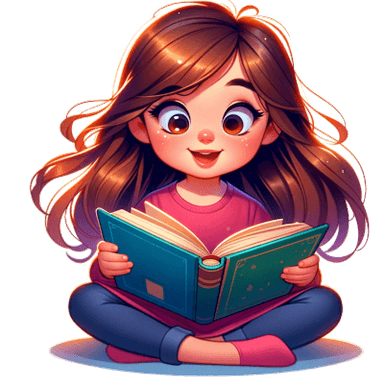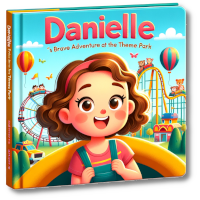Reading with children
a blog by Magic Tales

Cultivating a Love for Nature: How Children's Books Are Adapting to Encourage Environmental Education
In a world that is rapidly becoming dominated by digital screens and high-tech gadgets, children seem to be losing their connection with nature. However, we, as parents, guardians, or educators, have an opportunity to help rekindle this bond by utilizing a timeless tool - the power of children's books.
Wonderful World of Books
Books offer a magical journey into different worlds, enabling children to explore realms that cannot always be experienced firsthand. This is particularly true when it comes to learning about nature, animals, plants, and diverse ecosystems of the earth. Storytelling is a conduit for curiosity, wonder and understanding.
Choosing the Right Books
However, finding children's books that effectively convey the beauty and importance of nature can be daunting. Aim for choosing titles with colorful and realistic illustrations that expose kids to the varied landscapes and species on our planet. Books with strong environmental themes, conservation lessons, and cause-and-effect relationships in natural systems can help develop a deeper appreciation for the environment. While informational books are a treasure trove of knowledge, don't miss out on fictional stories that revolve around nature, as they're equally important for harnessing creativity and imagination.
For example, Eric Carle's The Tiny Seed takes the reader through the journey of a seed, offering early scientific knowledge about the life cycle of a plant. Similarly, Dr. Seuss's The Lorax is a timeless classic that introduces children to the concept of environmental conservation in a fun and engaging way.
Integrating Reading and Outdoor Activities
In addition to reading, children learning about nature can greatly benefit from real-world experiences. Encourage them to step outside and explore their immediate surroundings after reading a book. This can help them connect the theoretical understanding they have developed through reading with tangible experiences. For instance, after reading a book about birds, you could engage in bird watching or making a bird feeder.
Developing Critical Thinking
It's also essential to engage your child in discussions about the stories or events in the book. Ask thought-provoking questions and share opinions about the behavior of characters, consequences of actions, moral of the story, etc. This positively reinforces their learning and also develops critical thinking skills.
In conclusion, using children's books to introduce kids to the wonders of nature is a highly effective and nurturing strategy. Encouraging this connection can help children develop a lifelong appreciation for our planet and foster the environmental stewards of the future. After all, as the famous environmentalist Baba Dioum rightly quoted, 'In the end, we will conserve only what we love; we will love only what we understand, and we will understand only what we are taught.'
Want a personalized book to read with your child about Nature?
Takes as quickly as 30 seconds to create
Create a book about Nature

